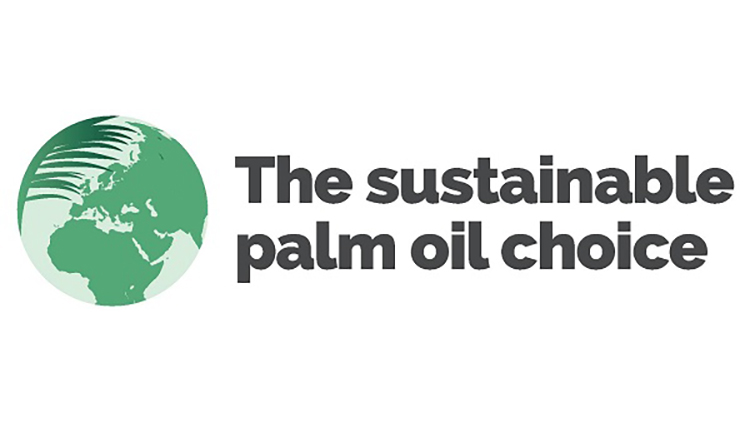Promotional Features
Sustainable palm oil is on everybody’s lips
The past couple of weeks have seen a lot of action around the issue of sustainable palm oil, as more and more people and organisations have become aware and have sought out solutions.
Dialogue
From 27 to 29 September, the third annual Sustainable Palm Oil Dialogue, organised by the European Palm Oil Association (EPOA) and IDH (the Sustainable Trade Initiative) took place virtually. Panels comprised of leading experts engaged hundreds of stakeholders in Europe and beyond focussing on three themes: crucial action to make sustainable palm oil the norm, driving positive social impact and accelerating forest positive action.
State of play
We learned that despite COVID-19 the usage of sustainable palm oil for food, feed and oleochemicals has remained stable at 90% in 2020 in Europe. In order to reach 100% there is a clear role for EU regulation. While we work to secure European market access for small farmers and producing landscapes, we also must cooperate with producer countries and align efforts with other emerging consuming countries such as India and China.
Beyond certification
EPOA and IDH reported on commitments to traceability of palm oil and NDPE commitments, showing that with virtually all palm from globally operating traders and refiners being traceable to the mill and covered by NDPE policies, Europe is delivering an important additional global impact and is protecting more forest reaching far beyond European legislation and certification of European import.
European market
The need to change consumer perception of sustainable palm oil was discussed, noting that while campaigns to protect forests from deforestation for palm oil have proved effective in the past ten years, there is also a potential negative effect of such campaigns. If palm oil using companies that have committed to 100% sustainable palm oil move away from palm oil altogether, we will lose the vast impact that Europe has on transforming the global palm oil supply chain. EPOA Chairman Frans Claassen noted, “We all know that there will be no sustainable production without a sustainable palm oil market. And we also know that there is more work to be done.”
Social impact
On 29 September, SPOC participant CNV Internationaal published a new roadmap to create Change through Social Dialogue, recognising that millions of workers earning a living in palm oil production are the indispensable workforce of the sector, their fundamental labour rights are often not respected. “To give the palm oil workers a voice, they need to be organized,” said Elles van Ark, managing director of CNV. CNV’s road map to reach sustainable change, includes a step-by-step approach to help stakeholders in the value chain to collaborate with their workers and unions. They have formulated a set of recommendations for each stakeholder group, so everyone - from producers to refineries, traders and buyers - can contribute to improving social dialogue and to encourage new forms of worker participation for all workers.
WWF Scorecard
The new WWF Palm Oil Buyers Scorecard was published on 3rd October. It assesses the progress and performance of 227 major retailers, manufacturers and hospitality companies on key actions they can and should be taking to show their commitment and support for a sustainable palm oil industry. With a number of companies still not scoring high scores, WWF says, “the 2021 scorecard is a reminder of the tremendous progress that has yet to be made. But the commendable performance of some companies is proof that sustainable palm oil is achievable.” We at SPOC encourage all buyers of palm oil to not only source 100% Certified Sustainable Palm Oil, but also to follow the WWF recommendations.
Sir David Attenborough
A new and inspiring series premiered on BBC One in the UK, called The EarthshotPrize: Repairing Our Planet. Hosted by HRH Prince William and Sir David Attenborough, it celebrates the people and organisations delivering real solutions designed to address the most critical of issues facing our planet. In the first episode, the programme looked at the catastrophic impact that unsustainable palm oil has had, and presented Cat Barton, Conservation Officer at Chester Zoo, who is contributing to the solution. She discussed the motivation for the campaign to make Chester the world’s first Sustainable Palm Oil City. Like Chester, Sir David Attenborough urges consumers to play their part. “Only a small portion of palm oil can be classified as deforestation-free, but that can change if more consumers demand it,” he says.
Support conservation society
To coincide with the airing of the Earthshot Prize programme, Chester Zoo, Orangutan Land Trust and Sumatran Orangutan Society coordinated a Statement in Support of Sustainable Palm Oil. The statement has been signed by close to 100 leading conservation and civil society organisations around the world. The signatories declared that they are committed to driving the palm oil industry in the right direction, and support a move to sustainable palm oil and not a blanket boycott.
The way forward
Here at SPOC (The Sustainable Palm Oil Choice), we have been challenged, enlightened and inspired by the many events which have taken place recently. It’s abundantly clear that sustainable palm oil is getting more and more attention, and while we know there are no easy answers, we do hope that this will result in more and more stakeholders doing their bit to ensure that sustainable supply chains become the norm.
The Sustainable Palm Oil Choice unites a group of NGOs and companies who are convinced that palm oil can play a positive role in society when produced sustainably.

